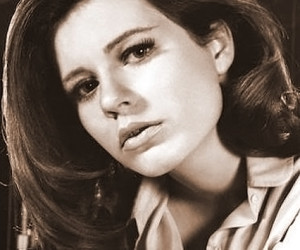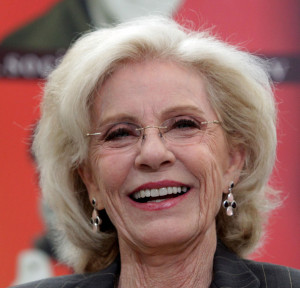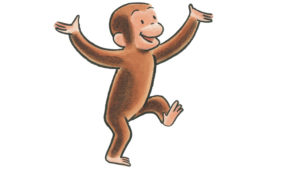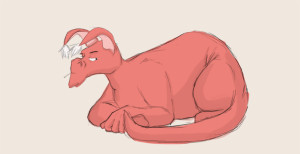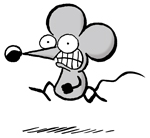Patty Lane would put it exactly that way. Remember Patty Lane? She was the one “who’s only seen the sights a girl can see from Brooklyn Heights.” If you’re of a certain age – mine, more or less – you know what comes before or after that line in the memorable theme music to The Patty Duke Show.
That was the one about “identical cousins” — and if that concept sounds genetically implausible, remember that the show ran between 1963 and 1966 when network television, in a time of often traumatic socio-political upheaval, opted for a chintzy species of magical realism where witches, Martians, talking horses and other anomalies could appear in your living rooms and three-hour boat tours could get you shipwrecked miles from the known world.
So, yeah, we bought the whole thing about two teenaged cousins who looked exactly alike while having starkly contrasting personalities. Cathy, the visiting relative from overseas, was demure, soft-spoken and scholarly while Patty was brash, jive talking and gregarious. They were both played by the teenage star who won an Oscar for her unsettling, enthralling performance as the blind deaf-mute Helen Keller in 1962’s movie version of The Miracle Worker.
This straight-from-Parent-Trap gimmick (apparently) sold the show to ABC. Duke’s zesty bravura sold the concept to America, which in retrospect is mildly astonishing. It’s difficult to remember now in a Miley Cyrus world that it was once rare to see adolescents inhabiting the center of a weekly TV sitcom. Leave it to Beaver cleared the way for Patty Duke Show with a point-of-view so child-centric that we still weren’t sure what its adult characters did for a living besides live in firehouses and teach school. But to have a weekly television series dominated by someone who was, at the time of its debut, still in high school, seems now to be the kind of a dare only a third-place network would take; one similar to the one it took by scheduling this crazy thing as the Wednesday lead-in to what turned out to be Patty Duke Show’s last season.
Little else was innovative about the series besides the concept. Whatever whimsical trouble the cousins contrived to get into, the adults almost always saved their bacon with sage (read: dull) counsel, just as they did in every family sitcom, with or without talking pets. But in an era when the Beatles’ pop explosion confirmed the arrival of what some persist in calling “youth culture,” it now seems altogether logical that a young person, a contemporary who likely knew all the lyrics to every Lesley Gore tune on the radio (as we could likewise recite every word in the show’s theme) was given brand-name autonomy over her very own show.
Something else that many people may have forgotten: She was really, really good at her work. It takes, at the very least, first-rate imaginative faculties to persuasively pull off a dual role and Duke sustained the magic effect for three seasons. Much later, Duke, with the candor and grace she showed in the aftermath of her often-nightmarish psychological troubles, recalled how “prescient” the show’s producers turned out to be in devising a dual role for someone afflicted with bipolar disorder.
She also recalled that shy, retiring Cathy was closer to her basic personality than the cheeky, boisterous Patty. I was captivated with Cathy’s downy composure — and, of course, would have been quite happy to “go steady” with her, if I thought I could somehow keep up with her intellect. (I was told at the time that I could; I didn’t think it was necessarily a compliment, and you had to have been there to know why.)
But it was Patty – reckless, bumbling, relentlessly optimistic Patty – that I found more to identify with. Her mouth got her in trouble, but she always led with her heart, and never in a corny way. She was, in her way, a dogged New York hipster, though she was, by the 1960s, dangerously close to anachronistic in her effusions — “Pop-Oh,” “Toodles,” “Endsville,” etc. – and her deportment. But if you were the right age for it (and I was), she struck you as being as much a paragon of cool as a TV private eye or secret agent of comparable vintage.
I was sorry to see Patty and Cathy go when they did. But they made me a Patty Duke devotee for life, as they did just about everybody else at or near my age group. Yet it was always on the small screen that Duke made her most lasting impressions on me, whether it was a guest shot on a variety show or her Emmy-winning turn in My Sweet Charlie, her lovely, heartbreaking two-character recital with the late, great Al Freeman Jr. Her acceptance speech for that award was, itself, heartbreaking and worrisome. Was she all right? Would she be OK?
She would be. And until today’s unwanted news, I thought she had more gifts to bestow. It’s fine. She’s given us plenty. Or so I’ll eventually convince myself.
